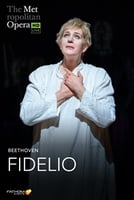A Flame That Refuses to Die From the first glint of sunlight on the dusty Seville square to the...
Nabucco by Verdi — Freedom’s Cry in Chains
 A Storm of Faith and Freedom
A Storm of Faith and Freedom
When Nabucco begins, it doesn’t feel like a museum piece. It feels like a mirror — one that still reflects our world’s struggles with pride, power, faith, and belonging. From its first shattering chords, Giuseppe Verdi’s early masterpiece is about the chaos of leadership, the resilience of community, and the fragile hope that can exist even under tyranny. Though written in 1841, it might as well be describing the anxieties of the twenty-first century — a time when nations fracture, ideologies clash, and people search for meaning amid noise.
Verdi’s Personal Exodus
By the time Verdi composed Nabucco, he was a broken man. His wife and two children had died, and he’d vowed never to write again. Then came a libretto about the Babylonian exile of the Hebrews — a people whose world had also fallen apart. One line stopped him cold: “Va, pensiero, sull’ali dorate” — “Fly, thought, on golden wings.” That image of thought as flight became his salvation.
The resulting opera, premiered at La Scala in 1842, was more than a comeback — it was a declaration of artistic resurrection. Italy itself was fragmented under foreign rule, and the Israelites’ yearning for their homeland echoed the Risorgimento, the movement for Italian unification. Verdi’s music became political without ever naming politics, and the cry of “Va, pensiero” became Italy’s unofficial anthem for freedom.
A Story Written in Fire and Water
Nabucco retells the biblical clash between the Hebrews and the Babylonian king Nebuchadnezzar (here “Nabucco”). After conquering Jerusalem, Nabucco declares himself divine, inviting divine punishment. His daughter Fenena defies him, converting to the Hebrew faith for love of Ismaele. Meanwhile, her jealous sister Abigaille, driven by rage and illegitimacy, plots her rise to power — one of opera’s fiercest and most tragic villains.
When lightning strikes Nabucco for his blasphemy, he is driven mad, and Abigaille seizes the throne. Yet her triumph turns hollow when she discovers she is not royal-born. As she descends into guilt and despair, the enslaved Hebrews gather and sing their lament — Va, pensiero — dreaming of the homeland they may never see again. It is one of opera’s most quietly revolutionary moments: not an aria of vengeance or spectacle, but of shared grief and identity.
In the end, Nabucco repents, his reason restored, and he frees the Hebrew captives. The opera closes not with destruction, but with reconciliation — the triumph of humility over arrogance, faith over fear.
A Mirror for Modern Times
What keeps Nabucco urgent today is how eerily it reflects our present moment. The questions it poses — Who holds power? Who decides what is sacred? What happens when a ruler mistakes himself for a god? — have never felt more relevant. Nabucco’s madness recalls modern hubris in every form: political cults of personality, social-media narcissism, the blind faith we place in authority or technology. Abigaille’s thirst for legitimacy and recognition feels like a tragic commentary on today’s influencer culture — where validation is often mistaken for identity.
And then there’s Va, pensiero. When Ukrainians sang it during the early days of war, or when protesters in Tehran and Hong Kong shared it online, the chorus became more than music — it became global shorthand for longing, resilience, and the right to exist. Even in pop culture, echoes of Nabucco appear in unexpected places: the chorus’s swelling harmonies can be heard in film soundtracks, sports anthems, and even political rallies, proof that Verdi’s melody has transcended opera to become part of humanity’s collective emotional vocabulary.
From Milan to the Met
When The Met: Live in HD broadcast Nabucco to audiences worldwide, it reminded millions why Verdi still matters. Elijah Moshinsky’s monumental production, with its massive stone temples and shimmering golden light, captured both the grandeur of empire and the intimacy of faith. George Gagnidze’s Nabucco — proud, broken, and redeemed — stood as a warning about power’s cost. Liudmyla Monastyrska’s Abigaille, with her volcanic voice and tragic ferocity, felt like a woman born for a world that feeds ambition but punishes desire.
For many watching in cinemas, Nabucco spoke directly to our moment — to wars fought in the name of pride, to displaced peoples longing for home, to societies trying to find unity in division. Verdi’s 19th-century lament had become a 21st-century prayer.
Opera Insight
Did you know? When Verdi died in 1901, over 200,000 people lined the streets of Milan as a chorus of thousands sang Va, pensiero under Toscanini’s baton. It remains the only opera chorus to become both a national hymn and a universal cry for peace.
The Enduring Power of the Golden Wing
Verdi once said, “All of Italy is in Va, pensiero.” But today, it belongs to the world. Nabucco continues to remind us that freedom — of thought, faith, and voice — can never truly be conquered. In an era when headlines often echo the chaos of Babylon, Verdi’s golden-winged melody still dares us to believe that compassion can outlast cruelty, and that even in captivity, the human spirit will sing.
Friends of the Opera is dedicated to making opera accessible, educational, and inspiring for everyone in our community. If you enjoy reading the Friends of the Opera blog, including Arias and Insights, please consider signing up for a membership or providing a donation of support: Learn More.



